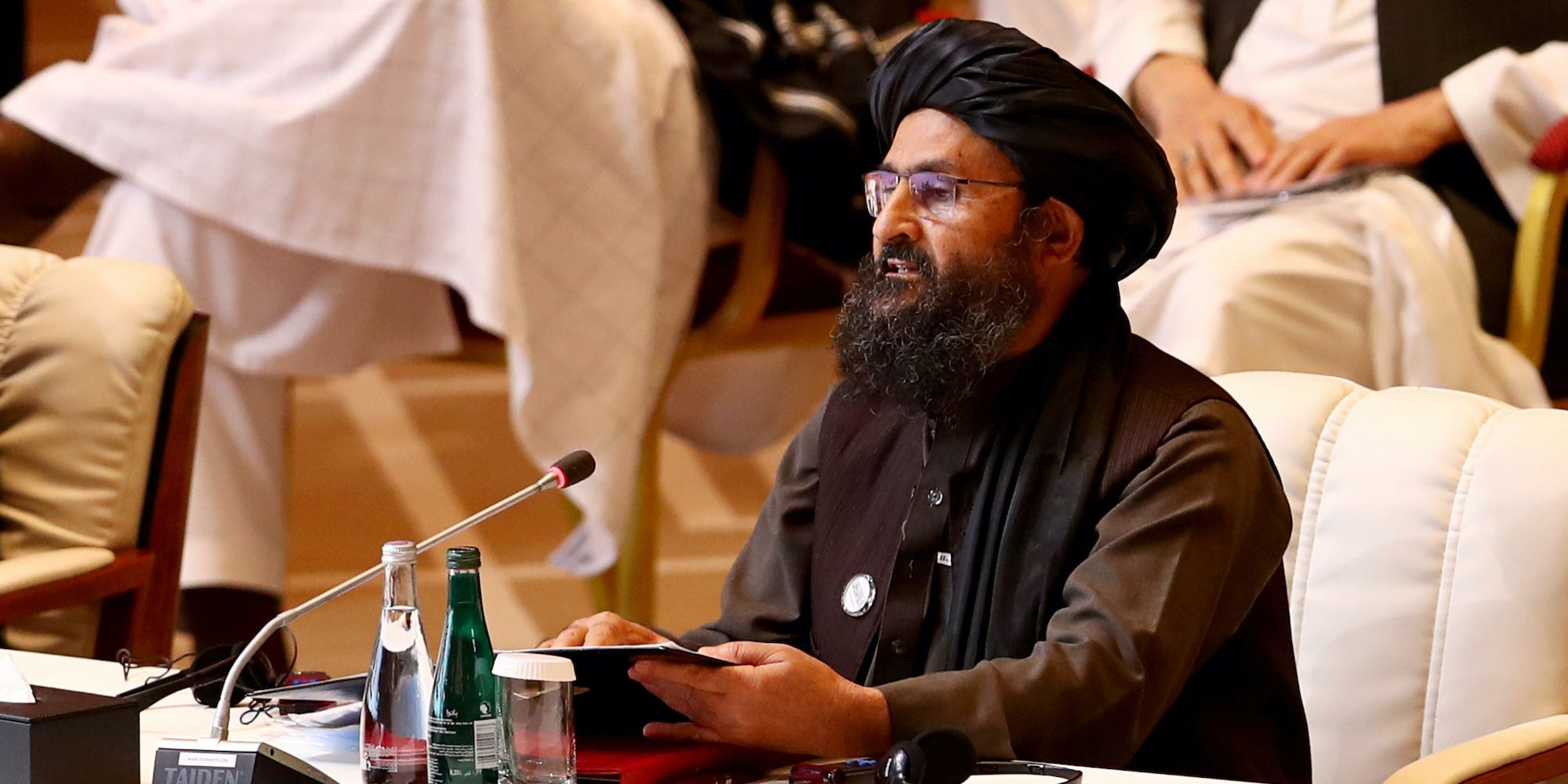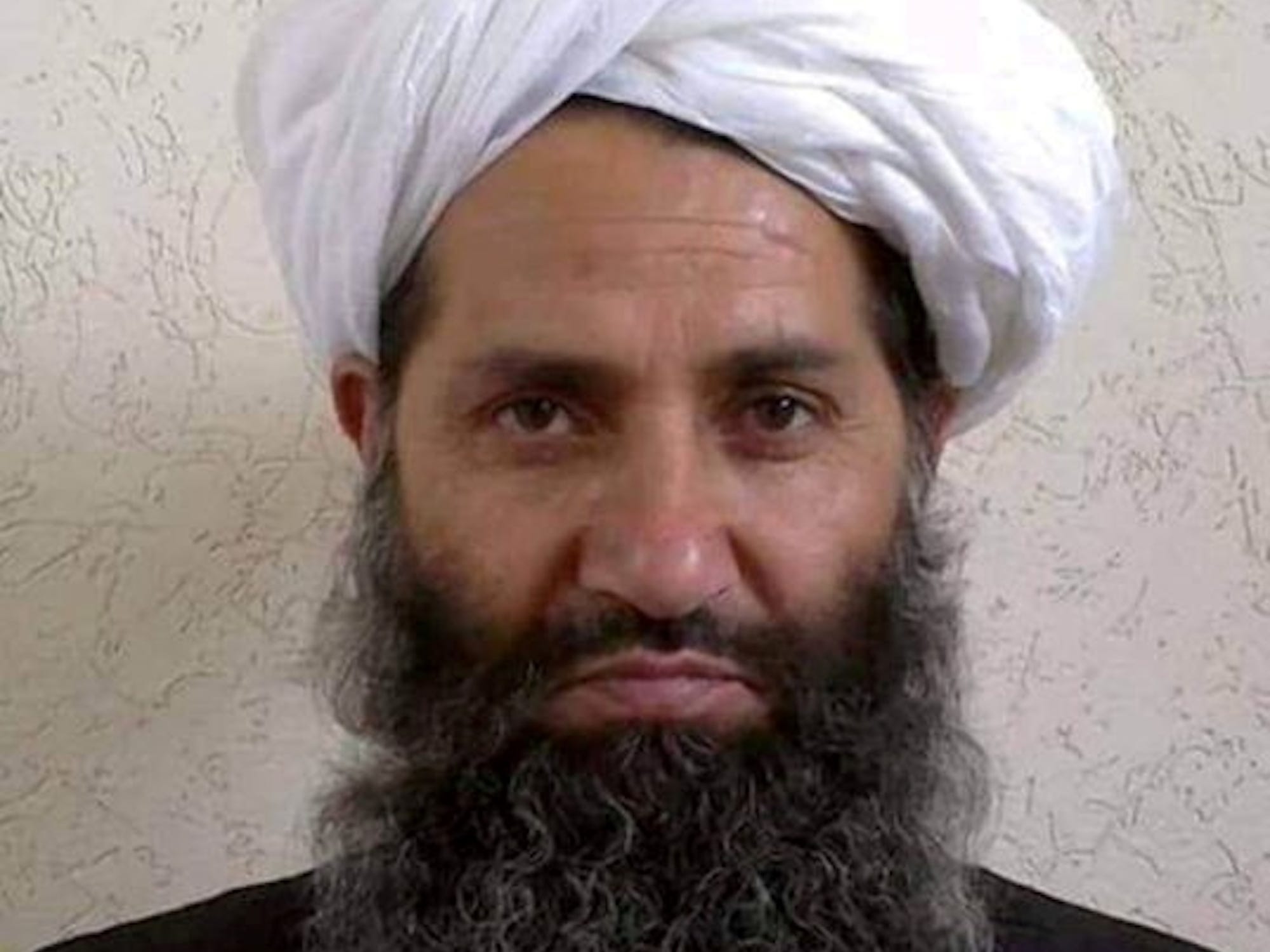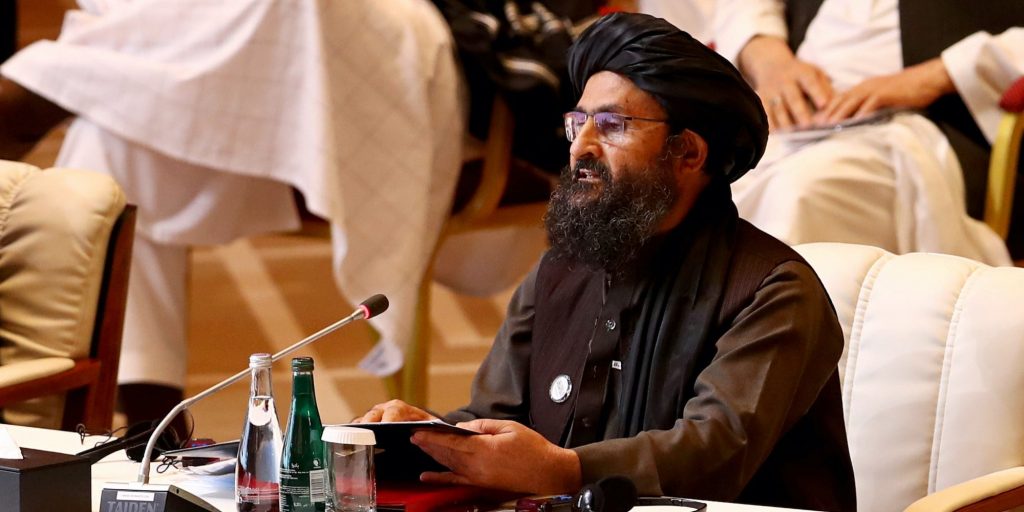
Ibraheem al Omari/Reuters
- The Taliban's supreme leader and acting deputy prime minister haven't been seen in public for a long time.
- A spokesperson denied Monday that its deputy PM, Mullah Abdul Ghani Baradar, was dead.
- The absences had fueled a rumor that Baradar was killed in a fight with a rival.
- See more stories on Insider's business page.
The disappearance of two top Taliban figures from public view has prompted a spokesperson to deny that one of them had died, according to multiple reports.
The group's top leader, Mullah Haibatullah Akhundzada, has not been seen in public since the group seized Kabul on August 15, Reuters reported.
Mullah Abdul Ghani Baradar, who is acting as the group's deputy prime minister, also has not been seen for several days, The Guardian reported.
On Monday, a spokesperson for the militant group Suhail Shaheen issued a statement over Twitter denying rumors Baradar had been killed in a fight.
-Suhail Shaheen. محمد سهیل شاهین (@suhailshaheen1) September 13, 2021
Using a different spelling of Baradar's name and the Taliban's term for Afghanistan, Shaheen said that Baradar had used a voice message to reject "all those claims that he was injured or killed in a clash. He says it is lies and totally baseless."
The "clash" seemed to refer to rumors that Baradar's supporters had got into a fight with those of Sirajuddin Haqqani, one of his political rivals, Reuters reported.
The group released footage purporting to show Baradar in meetings in Kandahar, southern Afghanistan, the agency reported. The group also released photographs of a handwritten note, purporting to be from one of his deputies, confirming the Kandahar meeting, the Guardian reported.
Insider was unable to independently confirm the footage or the audio as authentic, and has not reviewed the note.
The Taliban have not made such denials about leader Mullah Haibatullah Akhundzada. He is rarely pictured and rarely makes public statements in person, according to a Reuters profile.

Twitter via Reuters
The Taliban have previously attempted to keep the death of a leader under wraps.
In 2015, the group revealed that its founding leader, Mullah Mohammed Omar, had died two years prior, as the Associated Press reported at the time. Nonetheless, the group had continued to issue statements in his name until the death was admitted, The Guardian reported.
The Taliban's secretiveness has generally been attached to its status as an insurgent group - so the disappearances amid its newfound dominance in Afghanistan have fueled the rumors, The Guardian reported.
